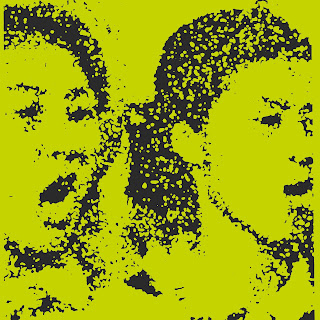What's (Re)New?: Sprung aus den Wolken
Sprung aus den Wolken
s/t
Bureau B
Reissued: 9/23/22
The crude, junkyard confrontation that composed the recently reissued self-titled LP from Sprung aus den Wolken emerged from Geniale Dilletanten, an art movement whose genesis is credited to a concert of the same name (albeit intentionally misspelled) that took place at the Tempodrom in Berlin in 1981. In some ways comparable to the No Wave movement of the late 1970s in grit-strewn New York City which challenged the authenticity of CBGB’s seminal platform, Geniale Dilletanten was a reactionary burst of primal and creative energy whose ethos was interpreted through art, film, and, of course, music. Geniale Dilletanten alumni also include Einstürzende Neubauten, Mekanik Destrüktïw Komandöh (M.D.K.), and Der Plan to name a few.
Sincerely,
s/t
Bureau B
Reissued: 9/23/22
The crude, junkyard confrontation that composed the recently reissued self-titled LP from Sprung aus den Wolken emerged from Geniale Dilletanten, an art movement whose genesis is credited to a concert of the same name (albeit intentionally misspelled) that took place at the Tempodrom in Berlin in 1981. In some ways comparable to the No Wave movement of the late 1970s in grit-strewn New York City which challenged the authenticity of CBGB’s seminal platform, Geniale Dilletanten was a reactionary burst of primal and creative energy whose ethos was interpreted through art, film, and, of course, music. Geniale Dilletanten alumni also include Einstürzende Neubauten, Mekanik Destrüktïw Komandöh (M.D.K.), and Der Plan to name a few.
Sprung aus den Wolken (meaning “Jump from the Clouds” in English) was formed by Kiddy Citny, (a.k.a. Inri Intrigo). Initially a solo project, the iteration of the group that performed for this LP featured Fred Alpi, Thierry Noir, Piet Essens and Alexander Hacke, the last of whom penned the liner notes for this reissue. Laden with manifesto-styled outbursts, reverberating dub elements, programmed beats, and banged objects, Sprung aus den Wolken doesn’t stray too far from the Kosmische Musik (or its more slanderous namesake, Krautrock) era that precedes it, groups like Faust and Amon Düül having had explored similar ground years before.
However, as the sonic innovations of the Kosmische Musik scene had been appropriated by the likes of Brian Eno (and however many other artists had latched on during the post-punk era) by the time of this release, there’s a looseness, lack of completeness, and provocative disposition that almost dares listeners to enjoy it, let alone reference it. While the opening track “Noch Lange Nicht” is at least anchored by a minimalist bass groove and reverberating percussion, the free-form stanza shouting during “Freue Mich Auf Dich” is driven by a fuzzy pulse and rough bouts of static evocative of a microphone being dragged across wool. These first two tracks offer some preview as to what the album has to offer, followed by the quick and relatively musical “Sei Still”, the floating vocals and sonorous whine of “Als Wäre Nichts Gewesen”, the ringing chimes and injured grunts featured in “Nur Noch Beben”, and the pseudo-arranged clatter and intercom narration in “Längst Fällig”.
However, as the sonic innovations of the Kosmische Musik scene had been appropriated by the likes of Brian Eno (and however many other artists had latched on during the post-punk era) by the time of this release, there’s a looseness, lack of completeness, and provocative disposition that almost dares listeners to enjoy it, let alone reference it. While the opening track “Noch Lange Nicht” is at least anchored by a minimalist bass groove and reverberating percussion, the free-form stanza shouting during “Freue Mich Auf Dich” is driven by a fuzzy pulse and rough bouts of static evocative of a microphone being dragged across wool. These first two tracks offer some preview as to what the album has to offer, followed by the quick and relatively musical “Sei Still”, the floating vocals and sonorous whine of “Als Wäre Nichts Gewesen”, the ringing chimes and injured grunts featured in “Nur Noch Beben”, and the pseudo-arranged clatter and intercom narration in “Längst Fällig”.
Probably the most fully rendered track is “A-i Akcam La”, the vocal following the bass groove and disco-centric rhythm and multi-tracked claps. In spite of how many different ways Sprung aus den Wolken toy with how one can hit surfaces and emit sounds, “A-i Akcam La” is a rare instance of toe-tap or head-knock. “Que Pa” presents an instance of emotional resonance, melancholic layers of synthesized tone gaining volume as the song carries on, sounding more composed and intentional than improv’d and experimental.
To that point, the term “experimental” exists because of albums like this. In the context of the Geniale Dilletanten school that brought Sprung aus den Wolken, iconoclasm is a catalyst for creativity. I hear both a devotion to and respect for the past as well as the need for enlightened youth culture to spit in the face of ancestral art or at least question its value. This album is not a pleasure to listen to, but that’s obviously the point.
To that point, the term “experimental” exists because of albums like this. In the context of the Geniale Dilletanten school that brought Sprung aus den Wolken, iconoclasm is a catalyst for creativity. I hear both a devotion to and respect for the past as well as the need for enlightened youth culture to spit in the face of ancestral art or at least question its value. This album is not a pleasure to listen to, but that’s obviously the point.
Sincerely,
Letters From A Tapehead




Comments